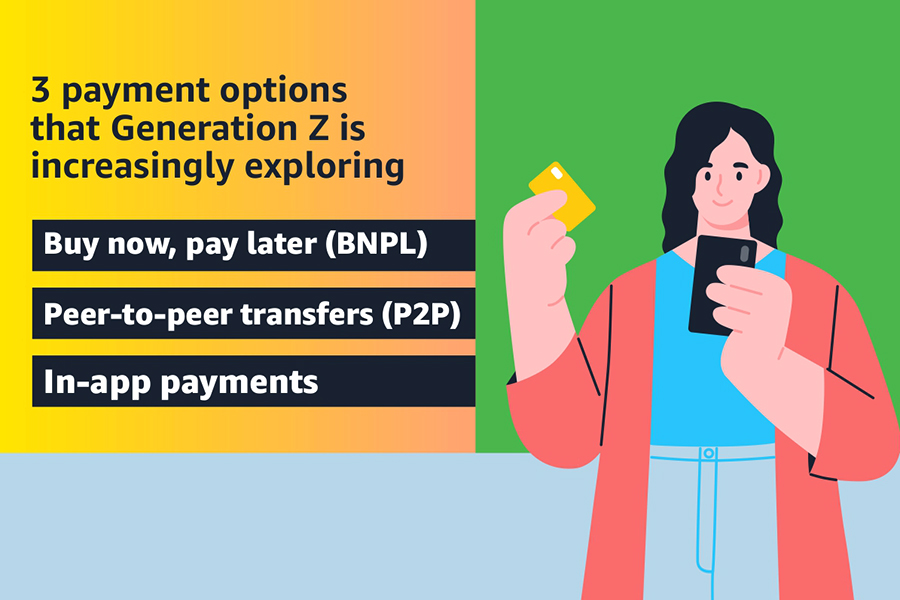
Gen Z prioritise personalisation over privacy, prefer paying digitally
Born between 1997 and 2012 Generation Z or Gen Z prioritise personalisation over privacy, prefer paying digitally, indicates a white paper by Amazon Payment Services based on finding from a survey undertaken among 1,800+ respondents across the UAE, Saudi Arabia and Egypt.
Gen Z prefer to pay digitally
More than half of research respondents prefer paying digitally as Gen Z as a demographic prefers digital payment methods, with payment cards and mobile wallets being the most popular. Those surveyed said they thought Buy Now, Pay Later (BNPL) options are a convenient way to pay for big-ticket items. Zero interest, lack of paperwork and lightening the pressure on the pocket are the reasons driving interest for this payment method.
In all three countries, the vast majority of respondents were aware of peer-to-peer (P2P) transfer apps, with awareness as high as 92% in Egypt driven by the early availability of the national Instant Payment Network. The majority of respondents across the UAE, KSA and Egypt claim to have conducted a P2P transfer using an app or another method at least once.
Research also found high awareness of in-app payments; however, respondents suggested that this method is competing with other commonly used payments methods, and that merchants should consider using discounts to steer more purchases toward mobile apps. One category of in-app payment that was welcomed by respondents was super apps. Respondents said that super apps, currently available in UAE, were particularly convenient, leading to high awareness and uptake.
Personalisation over privacy
Gen Z members also said that they prioritise personalisation over privacy. The study found that Gen Z is less concerned about data-sharing than previous generations, and they are willing to share their data if it provides them with a better shopping experience.
One Gen Z survey respondent said: “I am aware cookies track down the websites I visit and target advertisement towards me as per my taste and choice. [But] I get relevant content on what would interest me, making my online experience more personalized.”
Millennials who took the survey, however, expressed more concern about data-sharing. One millennial respondent said: “I am very careful and reluctant in sharing my data, I feel unsafe and prefer to only click on websites I know. Even on known websites, I do not share my information.”
Underlying motivations driving behaviour
To successfully reach Gen Z businesses must understand not only their quantifiable behaviours but more importantly their underlying motivations.
As the first generation of digital natives, Gen Z have never known a world without smartphones and the internet, unlike the digital immigrants who preceded them. This has exposed Gen Z to various global issues very early in life due to their behaviour as heavy users of social media, embedding a deep sense of social responsibility which shows up in their choice of brands and workplaces. To gain favour with Gen Z businesses must understand their values and priorities and develop a matching corporate social responsibility strategy.
Gen Z is also one of the most entrepreneurial generations, especially in the Middle East. This entrepreneurial mindset is motivated by the underlying desire for financial independence. As a result, offering loyalty programmes and reward schemes that emphasise affordability, and showcasing financial planning as an attractor to newer payment methods will be beneficial for businesses targeting Gen Z.
Notifications